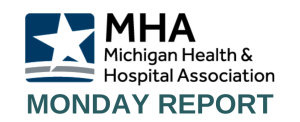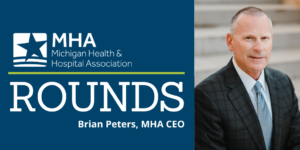The MHA and the Michigan Council for Maternal and Child Health recently secured a new state grant to support birthing hospitals. The Michigan Department of Health and Human Services is providing $10 million for hospitals to support the Michigan Alliance for Innovation on Maternal Health (MI AIM) work and the cost of The Joint Commission’s Maternal Levels of Care (MLC) Verification program. $1 million of the funding will be dedicated to cover the hospitals’ cost of the MLC Verification.
Hospitals participating with MI AIM and pursuing MLC verification are eligible to receive a share of the remaining $9 million in fiscal year (FY) 2024. This funding for hospitals is also included in the FY 2025 budget.
To receive funds, hospitals must be a MI AIM participant and completed an application for The Joint Commission’s MLC Verification program before Aug. 1, 2024.
The MHA Keystone Center is providing support to hospitals interested in pursuing this new state funding. The MHA will host an informational webinar at 2 p.m. on Wednesday, April 17.
For more information, members may visit the MI AIM Maternal Levels of Care webpage, contact Andrew Syrek at the MHA or watch the presentation from The Joint Commission on the MI AIM webinar.


 MHA CEO Report — Vaccinations & Respiratory Illness Season
MHA CEO Report — Vaccinations & Respiratory Illness Season An Open Letter to Hospital Boards of Directors: Long-Term Strategic Planning needs Your Attention
An Open Letter to Hospital Boards of Directors: Long-Term Strategic Planning needs Your Attention MHA in the News
MHA in the News